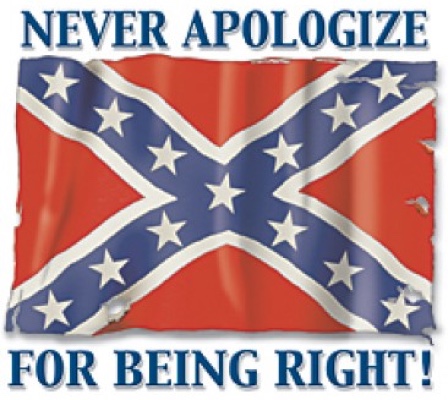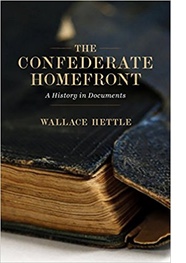The Other Mistake Southern Heritage Defenders Make

Image from rednecktshirtwonderland.com
They’re not just wrong to overlook the fact that slavery was the cause of the war, they’re wrong about this, too.
During a research trip in the 1990s, I worked at the Virginia Historical Society in Richmond. One morning, after visiting the breakfast bar at my hotel, I sat alone and had my bagel with cream cheese. Overhearing the conversation at the next table, I realized that I had stumbled into a convention of the Sons of Confederate Veterans (SCV). I suddenly felt that I was trapped behind enemy lines.
 The
SCV traces white Southerners back to a mythic, heroic Lost Cause.
This view is in sharp contrast with virtually all professional
historians, who view the Confederacy as a rebellion to maintain human
bondage.
The
SCV traces white Southerners back to a mythic, heroic Lost Cause.
This view is in sharp contrast with virtually all professional
historians, who view the Confederacy as a rebellion to maintain human
bondage.
But if the enemy surrounded me, what should I do? I decided to discard my newspaper, finish the bagel, and listen to my neighbors at a nearby table. One, from Ohio introduced himself to his new friends, and noted his pride in his Southern heritage.
Eventually, I sat down next to the Ohio native, and we had a short chat. He told me that he was not just proud of his Southern heritage, but was also a libertarian in his political views. This got my attention. How could someone devoted to “liberty” be so proud of his affiliation with a war to maintain slavery? Feeling irritated, I left the hotel and headed to the archives.
On the way out, I saw an SUV with a bumper sticker: the slogan was “you’ve got your [Malcolm] X, I’ve got mine” with a picture of the stars and bars of the Confederate battle flag. The sticker was a declaration that Confederate pride was about contemporary politics, not just about tracing one’s heritage to a great-great-grandfather. The bumper sticker was akin to today’s denunciations of Black Lives Matter in Charlottesville. The SCV would protest that their Robert E. Lee, their marble man on the pedestal was a man of honor, but we learned in Charlottesville that America’s growing fascist movement views Lee as a symbol of their values.
This connection between reactionary politics and Confederate ancestry is truly unfortunate. In a sense, the desire to seek out one’s heritage seems almost universal. Today, people across the political spectrum enjoy finding their heritage. One can see this with the popular DNA tests sponsored by the scholar Henry Louis Gates, Jr. on PBS. The problem is that these men from the SCV really cared about only one of their ancestors: the soldier from the Civil War.
In fact, their heritage is a lot more interesting than these SCV members suspected. Confederate heritage includes Unionists, women, ministers, poor whites, and slaves, not just soldiers and politicians. The remarkable variety of the Confederate people; their diversity, is precisely what makes them interesting.
Diversity is still a contested idea today, and not just with the Sons of Confederate Veterans. Recently we saw a debate over diversity in Silicon Valley, as a Google employee conspicuously aired his bigoted views on hiring in the technology sector.
I
do not know how to solve Google’s diversity problem, or that of our
society more broadly. However, I can say that you cannot understand
the Civil War without embracing the diversity of the Confederate
experience.